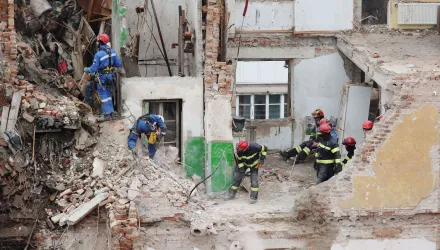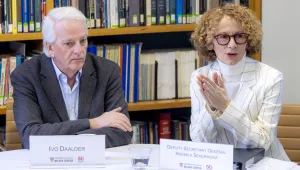Cooperating to Compete: The Role of Regional Powers in a U.S.-Led Global Nuclear Order (New Date and Location)
Multilateral institutions are proliferating in seemingly every sphere of international cooperation. From the environment to economics, from security to the nuclear realm, a growing number of institutions at the regional, transnational and bilateral levels are complementing the work of already established global institutions. But what drives this phenomenon, and more importantly, who stands to gain from it and why? The central argument of this MTA seminar is that institutional proliferation should be read both as a functional and a strategic phenomenon.
Coffee and tea provided. Please join us - Everyone is welcome, but admittance will be on a first come–first served basis. NOTE - NEW DATE AND LOCATION.




